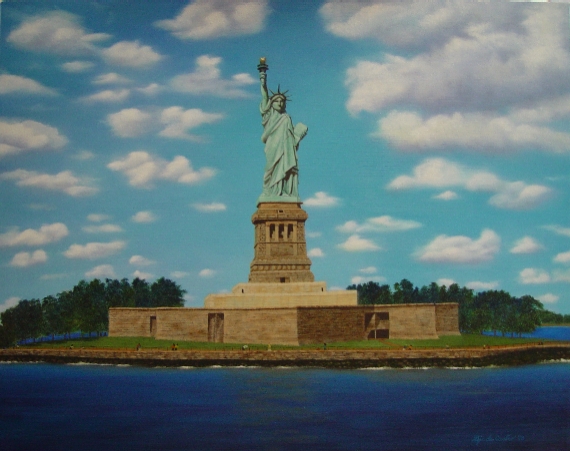National Roles in Today's World
This very intriguing graphic has got me thinking about the roles nations play in the world today, about recent wars, and about how all-encompassing force of Globalisation is reshaping national rolls in the turbulent world we live in today.
In the graphic, some pictures are shown of American cemetaries in France, where soldiers died in both World Wars. In both, America had an isolationist policy of "don't get involved unless completely necessary".
-In World War I under President Woodrow Wilson, America stayed neutral to the conflict until 1917, when it decided to get involved, on the side on the Allies against Germany and the Austro-Hungarian Empire. After the war, America along with member of both sides decided to sign the "Peace Treaty of Versailles". Because of the Treaty, Germany had to pay reparations. An armed force was banned and much of Germany's former territory was lost. America was one of the founding members of the League of Nations.
-In World War II, America once again had a neutral position (although it was widely believed that President Franklin Roosevelt was looking for a justification to enter). In the end, the Japanese bombed Pearl Harbor and it was Hitler who declared war on America, not the other way around. Just as in World War I, America decided to join France on the Western Front, while also fighting the Imperialist Japanese in the Pacific and in Asia. Once again, Germany was on the losing side.
The two World Wars had something very, very similar. In both, the nations in Western Europe-particularly France-were losing out badly to Germany. America, which remained Isolationist well into both wars managed to change all that. By no means is America wholly responsible for winning both World Wars. But if America had decided not to get involved, France would've been far more destroyed the Germans than what it was, on two different occasions.
In all conflicts America has gotten into until the Iraq war, America had been on the defensive. In the Korean war, and in Vietnam, America had always been defending the attacked nation. One of the reasons for this is the fact that the Cold War was on. America and the USSR had been locked in a rivalry for superiority. Neither wanted to be destroyed, so neither-with the exception of Soviet involvement in Afghanistan-neither nation dared lift a finger.
The Cold War is over. There is no more rivalry between Capitalism and Communism. Communism was destroyed. Millions of people across the world were liberated. Great deals of them rejoiced.
However, with Communism destroyed, a new problem arised. It was not Al-Qaeda, which, with some serious effort on the West's behalf, could be stomped out. It was the fact that there was only one remaining superpower in the world. I'm certainly not anti-America, but America, being the only state in the world today that is a superpower, is, as its latest actions in Iraq have shown, can be dangerous. I refer to Ayn Rand's famous quote on government's relation with human rights:
"A government is the most dangerous threat to man's rights; it holds a legal monopoly on the use of physical force against legally disarmed victims."
That applies not only to government power at home; governments can be just as tyrannical overseas.
A solution to the problem of only one superpower is to create another superpower, to become a Pluralist world again. This could potentially work well if one keeps the other in check and both respect Civil Liberties. However, there is no other nation in the world today that could fulfill that role sucessfully. The EU might be a candidate. But do we really want a continent that has been been through two world wars and will do, ultimately, do little to keep the world in order as a superpower?
The Libertarian solution is to create a Constitutional Amendment restricting government power overseas, not just in America but in all nations. And war, isn't the best way to create countries. Instead, nations should focus more on developing markets in once restricted economies. Capitalism, as history has shown us so many times before, is best at getting a country out of poverty, its government in order, and for it to introduce more Civil Liberties and Liberal Democracy. War only makes a nation go backwards. American intervention in Iraq has shown that. And I'd be willing to bet that the Iraqi people will be controlled by another dictator in 20 years time.



2 comments:
Interesting stuff I tend to agree with.
But you'll take some aweful stick from your Libz pals. They think USA is the mothership!
Not quite sure that Vietnam wasn't a time of Western initiation, however.
"But you'll take some aweful stick from your Libz pals. They think USA is the mothership!"
Hardly. American Government, under Bush, is far larger than what it ever was. He introduced a whole lot of new legislation, such as the PATRIOT Act, made a whole new department, and ran America's budget back down into the deep, deep red again. He's been one of the most irresponsible Presidents.
Post a Comment